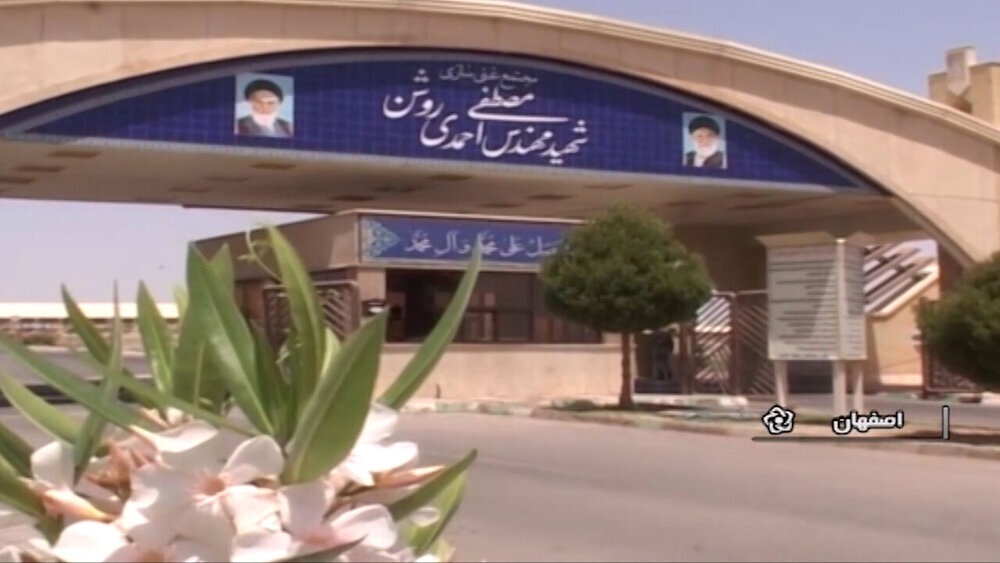Natanz sabotage reveals Iran’s strength

TEHRAN – The sabotage that targeted Iran’s key nuclear enrichment facility was mainly meant to undermine Iran’s nuclear program and throw a wrench into its scientific progress but the country emerged even stronger than before this week’s sabotage.
While Western intelligence sources were boasting that the Israeli sabotage targeting the Natanz nuclear enrichment plant undermined Iran’s ability to enrich uranium for nine months, Iranian authorities surprised the world by announcing the resumption of uranium enrichment at Natanz, not at the level of 20%, but this time at 60%, an unprecedented move that caught many international observers off guard given the fact that the Iranian government was in the midst of renewed diplomatic talks with the P4+1 (Russia, China, France, and the UK plus Germany) over how to restore a 2015 nuclear deal, officially known as the Joint Comprehensive Plan of Action (JCPOA).
The move to raise the enrichment level sparked debate over whether sabotage acts could hamper Iran’s nuclear progress or, as some pundits said, undermine its position in the Vienna nuclear talks.
Iranian Foreign Minister Mohammad Javad Zarif said Israel, by sabotaging Natanz, wanted to derail the Vienna talks. “The Zionists want to take revenge on the Iranian people for their success in lifting the cruel sanctions, but we will not allow this and we will take revenge for these actions from the Zionists themselves,” he said.
Mehdi Mohammadi, an advisor to the speaker of the Iranian parliament in strategic affairs, echoed a similar assessment. Accusing the United States of having a role in the sabotage, he said the U.S. wanted to take out Iran’s leverage by attacking Natanz.
“The U.S. goal in the terrorist attack on Natanz was to seize leverages of Iranian power and evacuate the power accumulated by the implementation of the parliamentary law. The beginning of 60% enrichment will regenerate the leverages in a much stronger way,” he said on Twitter.
But regardless of the what was the purpose of the Natanz sabotage, it revealed how Iran became even stronger scientifically in recent years. In addition, the sabotage showed that Iran still has many elements of power while its Western adversaries have exhausted almost all of their options vis-à-vis Iran. The U.S. has imposed far-reaching economic sanctions on Iran over the past few years. Now it has no significant sanctions to impose on Iran.
This is while Iran has just begun using its elements of power. When the Leader of the Islamic Revolution Ayatollah Seyed Ali Khamenei said in February that Iran may raise the level of uranium enrichment to 60% some pundits said this may not happen soon.
But Iran followed through on its promise, boosting enrichment to 60%. In a meeting with the members of Iran’s Assembly of Experts, the Leader had said that Iran “is determined to acquire nuclear capabilities commensurate with the needs of the country, and therefore, Iran’s enrichment limit will not be 20%, and it will act [to raise the level of uranium enrichment] whenever the country needs, for example, we may even raise the [uranium] enrichment [level] to 60% for nuclear propulsion or other work.”
Now that Iran has started 60% uranium enrichment, there are some voices in Iran calling for a further boost by raising the enrichment level up to 90%.
Malek Shariati, spokesman for the Iranian Parliament’s Energy Committee, who was the first lawmaker who publicly spoke of potential sabotage at Natanz, said the next step after 60% enrichment would be enriching uranium up to 90%.
“60% uranium enrichment is only one phase of 20%. It does not require more technology and the next phase would be 90%,” he said on Twitter, adding that raising the enrichment level to 60% is only one part of “Iran’s credible response.”
Whether Iran will further boost enrichment to 90% remains to be seen. Nuclear talks in Vienna are underway and it’s likely that Iran and the West would reach an understanding about how to restore the JCPOA. But even these talks now may be suspended because some people in Iran are now calling for the suspension of talks.
Fereydoon Abbasi, the head of Iran’s Parliament Energy Committee, said there is no need for the Vienna nuclear talks.
“In my view, these talks should not be held at the present time because the Islamic Republic’s position is clear after the Parliament’s [nuclear] law,” Abbasi told the Tehran Times, referring to a nuclear law passed by the Parliament obligating the government to step up nuclear activities if the West failed to lift sanctions on Iran.
Abbasi said the Americans must lift sanctions and return to the JCPOA.
“The Americans must lift the sanctions and then return [to the nuclear deal] and that there is no need for technical talks. There is no need to say how they should lift the sanctions and how we should do our obligations. This can be done with a stroke of a pen,” Abbasi, a nuclear scientist, told the Tehran Times.
He also said that following a possible lifting of the sanctions, Iran will need to verify that. According to Abbasi, it will take at least six months to verify the lifting of the sanctions. “After that, the U.S. can return to the JCPOA and Iran resume implementation of its commitments,” Abbasi pointed out.
Leave a Comment